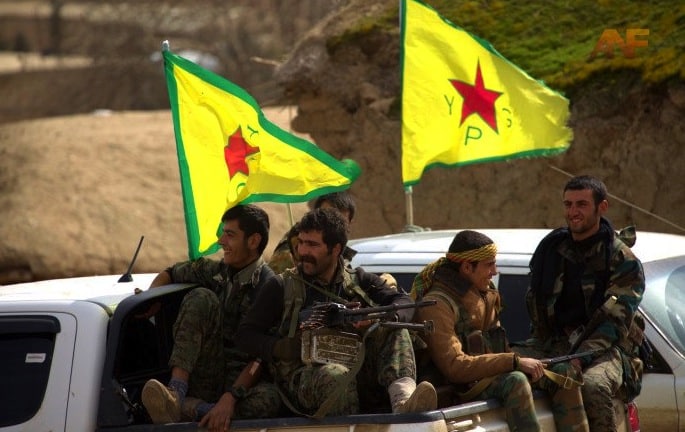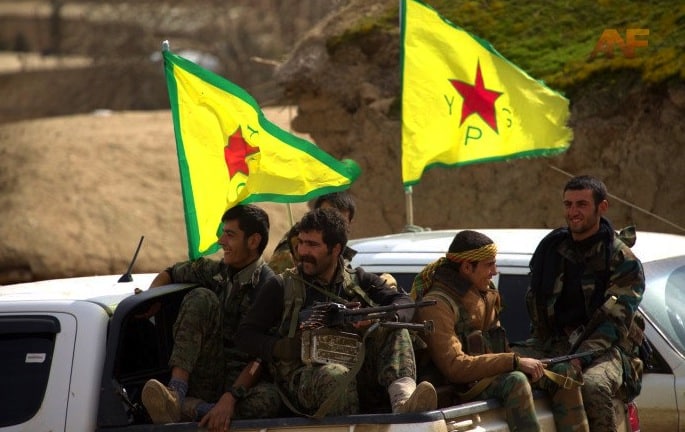ISIS, or ISIL, or Islamic State, has been almost completely defeated in Syria, but the U.S. Department of Defense is requesting an increase instead of a decrease in funding to support “Vetted Syrian Opposition,” or fighters in Syria against Syria’s Government, and it refers to these fighters as being part of America’s “strategy to defeat ISIS,” instead of as being what they now obviously are: fighters for regime-change, or to overthrow Syria’s Government (which is headed by its President Bashar al-Assad, who received 89% of the votes cast throughout Syria in the internationally monitored 2014 Presidential election).
The Trump Administration’s “Department of Defense Budget Fiscal Year (FY) 2019” funding-request to Congress calls for “III. Requirements in Syria” of:
a Coalition campaign to degrade, dismantle, and ultimately defeat ISIS in Syria. One key element of DoD’s strategy to defeat ISIS is to train, equip, sustain, and enable elements of the Vetted Syrian Opposition (VSO) eligible for support under current law. By the end of FY 2018, these forces are projected to total approximately 60,000 to 65,000; 30,000 to conduct ongoing combat missions against ISIS in the MERV, and 35,000 Internal Security Forces in liberated areas (to provide approximately 20 police/security forces for every 1,000 civilians).
Here is the:
SUMMARY
The FY 2019 request fully funds the Syria T[rain]&E[quip/arm] program based on requirements to sustain a 35,000 Internal Security Force together with a 30,000 combat personnel partner forces (as required) to liberate, secure, and defend territory previously controlled by ISIS [but now no longer ISIS-controlled]. The following is a summary of the requirements in Syria by category:
Category FY 2018 Request FY 2019 Request ($ in Millions) [FY2018, then FY2019]
Weapons, Ammunition, Vehicles and Other Equipment $393.3 $162.5
Basic Life Support $6.1 $8.0
Transportation and Staging $40.0 $28.0
Operational Sustainment $60.6 $101.5
TOTAL $500.0 $300.0
In other words: for the 2018 FY, $500 million is being sought, and for the 2019 FY, $300 million is being sought, for this campaign to overthrow Syria’s democratically elected (but in any case legitimate) President, and thus successfully to culminate the former U.S. President Barack Obama’s active military support of Al Qaeda in Syria to achieve this overthrow-objective.
If U.S. air-support is required in this “Coalition campaign” from the United States and its Coalition of the Saud family and other fundamentalist-Sunni Arab oil monarchies, then even a single U.S. plane that could be shot down by enemy fire (either Syrian, or Russian) could cost far more than the $800 million that this budget-request is calling for. Consequently, this is clearly a low-ball figure, which is normal for any Government request for a military invasion and occupation that American voters oppose by two-to-one. This has long been U.S. public sentiment regarding the issue. For example:
United Technologies/National Journal Congressional Connection Poll conducted by Princeton Survey Research Associates International. Sept. 5-8, 2013. N=1,002 adults nationwide. Margin of error ± 3.6.
“As you may know the Obama Administration has concluded that the government of Syria used chemical weapons, including nerve gas, to kill over 1,400 civilians last month. Which of the following best describes what you think the U.S. should do in response? Do nothing and stay out of the Syrian civil war. Launch a LIMITED military strike, using only air power, to punish the Syrian government for using chemical weapons. Launch a MORE SUSTAINED military strike, using only air power, to help rebels overthrow the Syrian government. Launch a FULL-SCALE military strike, including both air power and U.S. ground troops, to help rebels overthrow the Syrian government.”
|
Do nothing and stay out |
Limited airstrike |
More sustained airstrike |
Air power and ground troops |
Unsure/ Refused |
||
|
% |
% |
% |
% |
% |
||
|
9/5-8/13 |
55 |
21 |
6 |
6 |
12 |
Consequently, this is a budget-request that — though it may sail through Congress — is almost certainly opposed by the voters. The only scientific study that has ever been done on the question of whether the preferences of the U.S. electorate correlate at all with the legislation that ends up passing into law in Congress found that there was no significant such correlation but that the preferences of the wealthiest Americans did significantly correlate with what gets passed into law. If wealthy Americans favor continuation and increase of Obama’s military invasion and occupation of Syria, then Trump’s budget-request for this increased invasion-and-occupation there will likely be passed and signed into law by the President, in this ‘democracy’. Certainly, based upon all of the polling, both in the United States and in Syria, the likelihood that Trump will win another term as the U.S. President is lower than that Assad will win another term as Syria’s President, and this isn’t because Syria is a dictatorship and America isn’t. It’s because a far higher percentage of Syria’s voters support their President than the percentage of America’s voters who support our President. That’s what all of the polling, at least up to the present time, shows.
Throughout Trump’s campaign for the White House, he had attacked his ‘opponent’ Hillary Clinton’s neoconservative (i.e., imperialist) foreign-policies, and also President Obama’s neoconservative policies. Even after Trump won election, he said, in a 1 December 2016 rally in Cincinnati, that, “we will pursue a new foreign policy that finally learns from the mistakes of the past. We will stop looking to topple regimes and overthrow governments, folks. Our goal is stability, not chaos because we wanna rebuild our country. It’s time.”
Reprinted with Strategic Culture Foundation.


